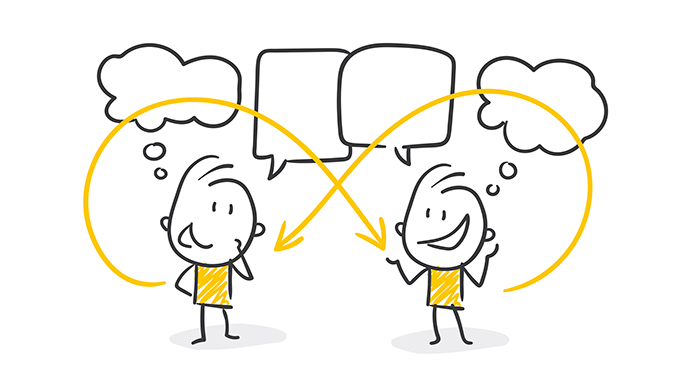By Barb Cook, M.Aut., Dip. HSc. (used with permission)
Workplace social skills. These words strike fear into the soul of any autistic person. I know this, because I am one of those people. I’ve had a tumultuous employment past, prior to my official diagnosis of Asperger syndrome (autism), ADHD and dyslexia in 2009. I never truly understood the “workplace social skills”, even though I was incredibly good at my job, never lasting any significant length of time due to the “importance” of having apt social skills with co-workers being an essential part of staying happily employed.
Pretty much every job I had would start out great. I would have my head down, learn everything I could about the job and would do the job to the best of my ability. Problem was, I was viewed as the person trying to impress the boss, that I was too “stuck up” to spend time with my co-workers or hang out with them. In reality, I was there to do a job and wanted to do it well without the distraction of idle chit-chat or having to go out after work to noisy bars, bright lights and with people I had no idea of what to talk to them about. Why would I torture myself? But I did, to try and fit in, to gain approval from my co-workers, while quietly suffering from increasing anxiety, depression and dread of returning to work. And this happened with nearly every job I had, favouring quitting and poverty over the daily dread of having to be social when in reality, all I wanted to do was work without the added stress.
So, I got to thinking, what are the top essential social skills people need to be successful at work? I was mortified when I queried Google. The lists of workplace social skills I read, filled my heart with dread and realised, how on earth can my fellow autism spectrum people succeed at work when these Top 7, Top 10 or Top 20 workplace social skills are the very things we struggle with, have no interest in engaging in or straight up causes us distress and difficulty in doing our job. Reading these lists felt like a death sentence to autistic employees. I knew the paradigm had to change and the emphasis on these skills were not made for us. These were designed for neurotypical (NT) people and we were slowly eroding ourselves to be like them and to make them feel comfortable.
Let’s take a look at some of these “holy grail” social skills and the challenges experienced, and how to tackle them so they will work for autistic people while being inclusive of the NT perspective. If we are to have true inclusion in the workplace, we need to approach this from both sides. We want them to be truly inclusive of us and our needs, so we also need to be mindful of how we can be inclusive of them into our world too. This is where genuine and collaborative inclusion works when both sides are prepared to work towards the wellbeing of all employees.
The List…. well some of it….
Maintain eye contact. No. This is not a useful skill if you are torturing yourself looking at your fellow worker because it is expected. If I try to look at a person while they are talking, I usually have no idea what they have said as I am trying to fight the pain I feel from their stare into my eyes, while listening to my internal voice saying “hold steady, steady… keeping looking at their eyes… oh gee they have long eyelashes…” while the warbling of their voice drifts over the top of my head. Now for me to properly and attentively listen to you, I have to look away and I tilt my head with my favoured ear towards you so I can properly comprehend. When I just focus on listening to the person, I can hear all the tones and changes in a voice. I have become incredibly good at hearing subtle changes and know when someone is being dishonest, are sad or hiding something. NTs have the skill of seeing these nuances through watching a person, their facial expressions and body language; I can hear it. We are both communicating and listening effectively, just differently.
Focus on your body language. Just reading this immediately raised a red flag… well a white flag. I’m ready to give up already and only at number 2 on the list. So, if I focus on my body language and having to look you in the eye… you can see just how much anxiety and stress this will cause.
Often autistic people appear to have a neutral look about them or the wrong expression in regard to the conversation context at the time. NTs often feel confused or think they have done something wrong, or more likely, there is something wrong with you when you give them furrowed brow look when they are telling you about their latest trip to Hawaii and having epic hangovers. The facial expression of confusion is relayed while we internally ask, “Why are you telling me this?”
To decode this, the NT is trying to bond with you from past experiences with fellow NTs. Apparently epic partying, then suffering, then partying again is a sign of having fun and status among their tribes and that your expected facial expression to this conversation is a sign of approval and acknowledgement of their epic feats. Personally, I would consider this the ultimate torture. Lots of people, noisy partying, feeling sick, headaches…. So, you can see why the screwed up, confused or blank facial expression may not be what they want to see and reject you as being too good for them. I’ve had this happen way too many times.
Now interestingly, we also experience the same feelings of rejection when we talk to people about what we did over the weekend or what we are passionate about. But their expressions are of stop talking to me, gee that is boring, you are weird. Again, we are the ones that end up feeling bad, the outsider and internalise, what did we do wrong and why can’t I connect to them when I talk about what I find enjoyable?
This workplace bonding is damn difficult and is something that needs careful consideration as this also covers number 3 and 4 on the list: show interest in others and how to make small-talk. Ask yourself, is it worth the effort of trying to bond with people that have extremely different values and perspectives of fun/interests than you do? Usually the answer is no but we still need to work together, day after day, week after week. We need to find mutual ground. I have found that by having a few key short scripts can be a great way to keep your co-worker on side without hurting their feelings. For example, during the midday gathering in the staff lunchroom, you can still be part of the NT conversation by injecting a small comment of, “oh it sounds like YOU had a lot of fun. Sorry I can’t stop to hear all about it, I have a pressing job to finish”…. While making your exit out of the room. This acknowledges their experience and gives connection.
The key is to keep conversations short but acknowledging. On the flip side, we need to be mindful that the co-worker may not be interested in the latest motorcycles tyres you just bought, what they are made of and how many miles you can get on them. If you work in the motorcycle shop, well then this is seriously handy knowledge to have. So how I get to talk about my passion is to weave it with the other person’s interests. “Hey Scott, sounds like you had a great time at the Blue Pineapple Bar. I rode my bike past there the other day as I got some new motorcycle tyres and wanted to test out how good they are. There is some amazing scenery out that way too and the tyres were fantastic with grip, especially on the tight twisting roads I rode through. I can see why you like going out there”. This short conversation satisfies my interests as well as encompassing the co-worker in the conversation. Again, keep the conversation short and sweet, and pull out that backup list of excuses to leave the conversation. “Sorry I can’t stop to chat longer Scott, I have an appointment to get to… (with my cat and Netflix – but we don’t say this part out loud)”.
In just the four workplace social skills covered in this article, you can already see how difficult, confusing and challenging it can be for autistic people. There are so many social aspects to navigate in the workplace that I will expand on these in future articles. If I tried to cover them all here, I could well end up submitting this as a book manuscript as there is so many skills required in navigating the workplace social scene! However, I hope through this intentionally light-hearted approach I have taken to this subject will encourage reflection, contemplation and genuine inclusion from all people in creating a happier and more understanding work environment.
 About Barb Cook
About Barb Cook
Barb is an Autism and Neurodiversity Employment Consultant and a registered Developmental Educator (DE) who is passionate in supporting, consulting and mentoring on employment issues for neurodiverse adults and employers. Barb has a Master of Autism (education) with focus on employment from the University of Wollongong, where she is also a tutor in this program and a research assistant in the area of self-determination and self-advocacy for autistic adults.
Barb was formally diagnosed as autistic along with ADHD and phonological dyslexia at age 40, and is editor and co-author of the internationally acclaimed book Spectrum Women: Walking to the Beat of Autism, and editor in chief of Spectrum Women Magazine.
As a Developmental Educator, Barb focuses on developing individualised learning strategies, tools and supports with positive outcomes for individuals across the lifespan. Barb embraces a collaborative approach by working with health and educational professionals, support staff, employers, employees, families and caregivers to develop their skills, knowledge and understanding of a person-centred approach in fostering positive support and enhancement of life outcomes. Barb has extensive experience in working with autistic people, ADHD and dyslexia, especially with adults in creating pathways in attaining life goals in the areas of education, employment, health and interpersonal relationships.
Visit: https://barbcook.com.au/


